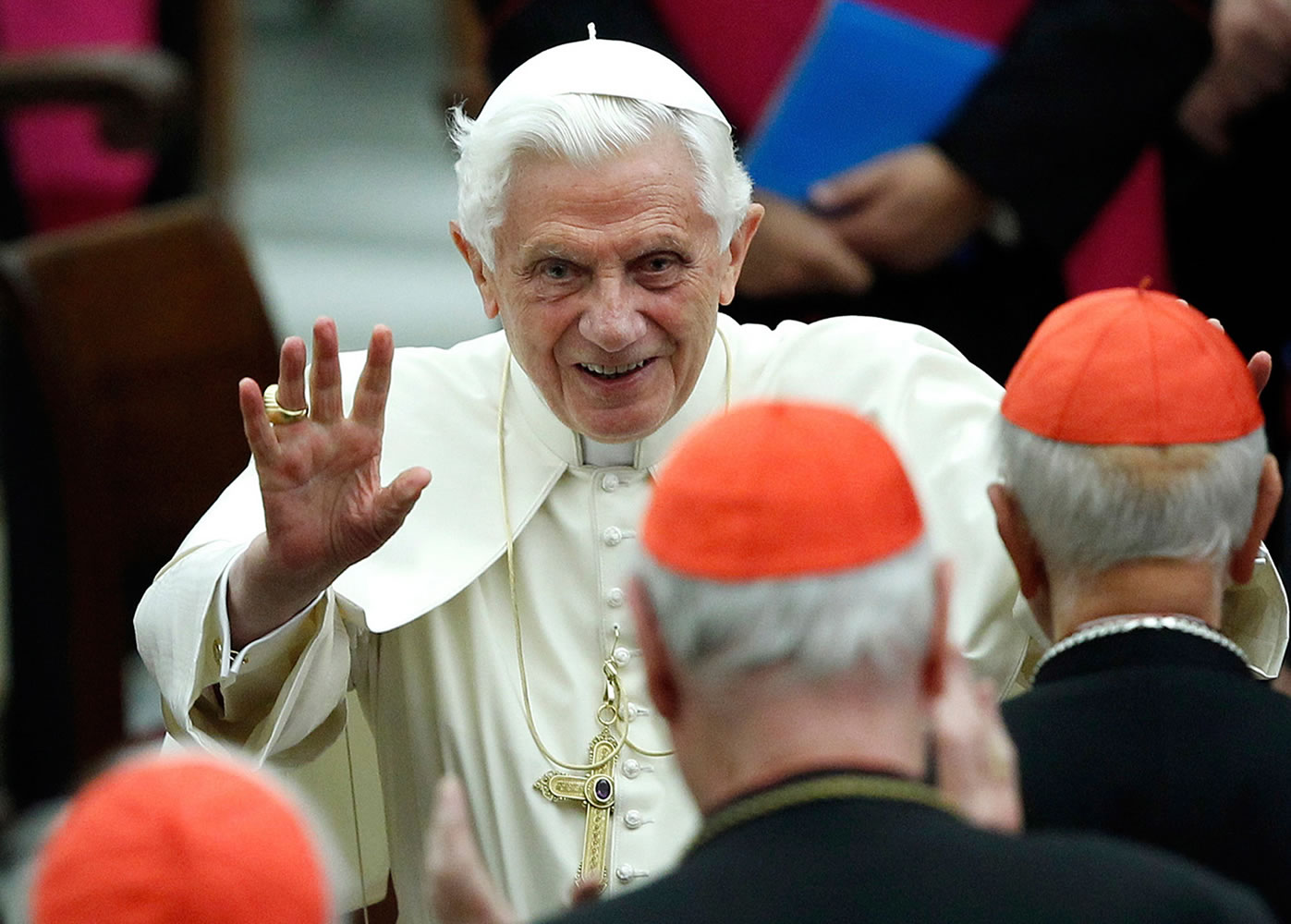The resignation of Pope Benedict XVI sparked surprise, appreciation -- and trust in God.
"Yes, it is coming up in our classrooms," said Ed Chan, campus minister at Seton Catholic College Preparatory High School in central Vancouver. "Students are asking who the new pope is going to be. But it's a mystery. Nobody has any idea."
Chan said Benedict's resignation due to frail health "is a very humble way of him dealing with his role. It is based on great conscience and great discernment. The immediate thing for any
Catholic is to remain trustful and trust that this is part of God's plan and the working of the Holy Spirit. We have to trust this is a good thing that's happening."
The secret voting that will take place among cardinals at the Vatican in March "is a joyous and exciting time," Chan said.
The Archbishop of Seattle, J. Peter Sartain -- leader of the Catholic Church in Western Washington -- released a statement Monday saying he had "strongly mixed feelings" about the pope's resignation.
"His decision is clearly a very personal, spiritual one, and it expresses his unfailing care and concern for the church he has served tirelessly throughout his life," Sartain said.
"Having had the opportunity to meet (Benedict) on several occasions, I have always been struck by his humility and kindness," Sartain said. "A brilliant theologian, he is also a caring pastor who looks one straight in the eye and listens carefully. His 2008 visit to the United States was a landmark occasion for many of us, and I was personally moved by his presence."
Sartain promised to pray for Benedict's health, and for the cardinals who will elect the next pope.
The outgoing Archbishop of Portland, John Vlazny, who will step down April 2, said the pope's announcement, while "totally unexpected, is consistent with his understanding and embrace of all ministry in the church as a service to the church and the world."
-- Scott Hewitt, The Columbian



